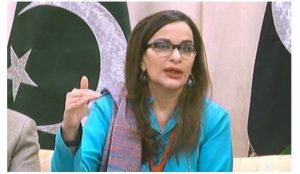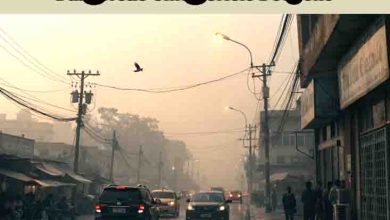‘Sindh’s infrastructure lacks strength to withstand disasters’
HYDERABAD: Social activists have urged provincial and federal governments to have proper planning to cope with natural disasters and said that Sindh needs to modify its infrastructure to better withstand calamities in future as in its existing shape it lacks strength to face heavy rainfall or flood.
They said that Sindh government should take up its case with the federal government over the vast scale of devastation caused by heavy rainfall and floodwaters that ravaged through its plains before falling into the sea.
They were speaking at a meeting organised by Bhitshah Declaration Coord-ination Council at Sindhi Language Authority on Monday.
The South Asia Partne-rship (SAP) chief Mohammad Tahseen proposed an amendment to the Constitution to ensure clean environment for people. His organisation was supporting all the good work being done by Federal Minister for Climate Change Sherry Rehman, he said.

He said that a check was necessary over the international aid pouring in Pakistan and called for making preparations for facing the climate change phenomenon. Thanks to flawed policies of developed world, countries like Pakistan were paying a heavy price, he said.
He advised Pakistan to present a strong case on international forums and said that whenever man played with nature it struck back with fury in its own way. “We have polluted freshwater by disposing of effluent into it and deforestation has threatened the very existence of various species of birds and animals,” he said.
Prof Ismail Kumbhar said that natural waterways had been encroached upon and if the encroachments were not removed it would lead once again to disastrous consequences. Necessary steps must be taken in the light of devastation caused by flood in Sindh, he said while making a detailed presentation on urban flooding.
He discussed Left Bank Outfall Drain and its design fault and said the same was the issue with Right Bank Outfall Drain. About 2.5 million people were affected by this year’s devastating flood which had badly affected agriculture sector, he said.
Abbas Khoso said that Sindh would keep suffering for many years to come due to the massive havoc wreaked by floods. If the conditions did not change in Sindh it would once again lead to dangerous situation in next season, he said.
Journalist Ishaq Mangrio said that social activists were the first to reach flood victims after the calamity hit them and they continued their work despite all odds, which was a positive development.
Shahnaz Sheedi, a SAP representative, said that women and children were the worst hit in floods. The provincial and federal governments should change their attitude as far as disaster mitigation was concerned, she said.
Lala Maqbool Mashori said that Bhitshah Declara-tion Coordination Council was formed in 1991 with 24 organisations and today 132 organisations had become part of this network. This network had trained many leaders of society, he said.
Parkash, Rafia Gullani, Bashir Abro, Wajid Leghari, Ali Hassan Mahesar, Madiha Shah, Javed Soz and others also spoke at the meeting.
Dawn, December 27th, 2022







